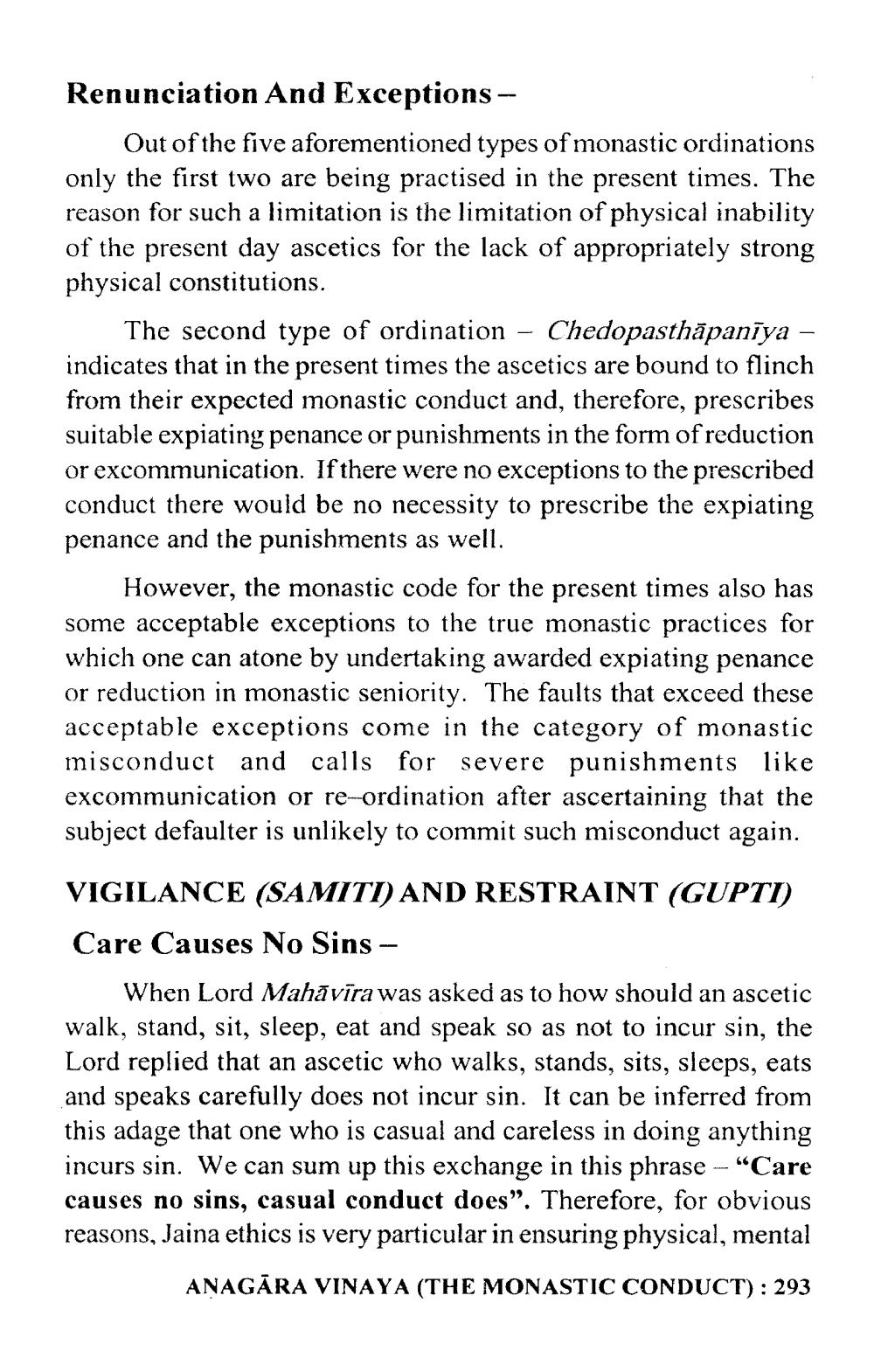________________
Renunciation And Exceptions -
Out of the five aforementioned types of monastic ordinations only the first two are being practised in the present times. The reason for such a limitation is the limitation of physical inability of the present day ascetics for the lack of appropriately strong physical constitutions.
The second type of ordination – Chedopasthāpanīya – indicates that in the present times the ascetics are bound to flinch from their expected monastic conduct and, therefore, prescribes suitable expiating penance or punishments in the form of reduction or excommunication. If there were no exceptions to the prescribed conduct there would be no necessity to prescribe the expiating penance and the punishments as well.
However, the monastic code for the present times also has some acceptable exceptions to the true monastic practices for which one can atone by undertaking awarded expiating penance or reduction in monastic seniority. The faults that exceed these acceptable exceptions come in the category of monastic misconduct and calls for severe punishments like excommunication or re-ordination after ascertaining that the subject defaulter is unlikely to commit such misconduct again.
VIGILANCE (SAMITI) AND RESTRAINT (GUPTI)
Care Causes No Sins -
When Lord Mahāvīra was asked as to how should an ascetic walk, stand, sit, sleep, eat and speak so as not to incur sin, the Lord replied that an ascetic who walks, stands, sits, sleeps, eats and speaks carefully does not incur sin. It can be inferred from this adage that one who is casual and careless in doing anything incurs sin. We can sum up this exchange in this phrase --- “Care causes no sins, casual conduct does”. Therefore, for obvious reasons, Jaina ethics is very particular in ensuring physical, mental
ANAGĀRA VINAYA (THE MONASTIC CONDUCT): 293




